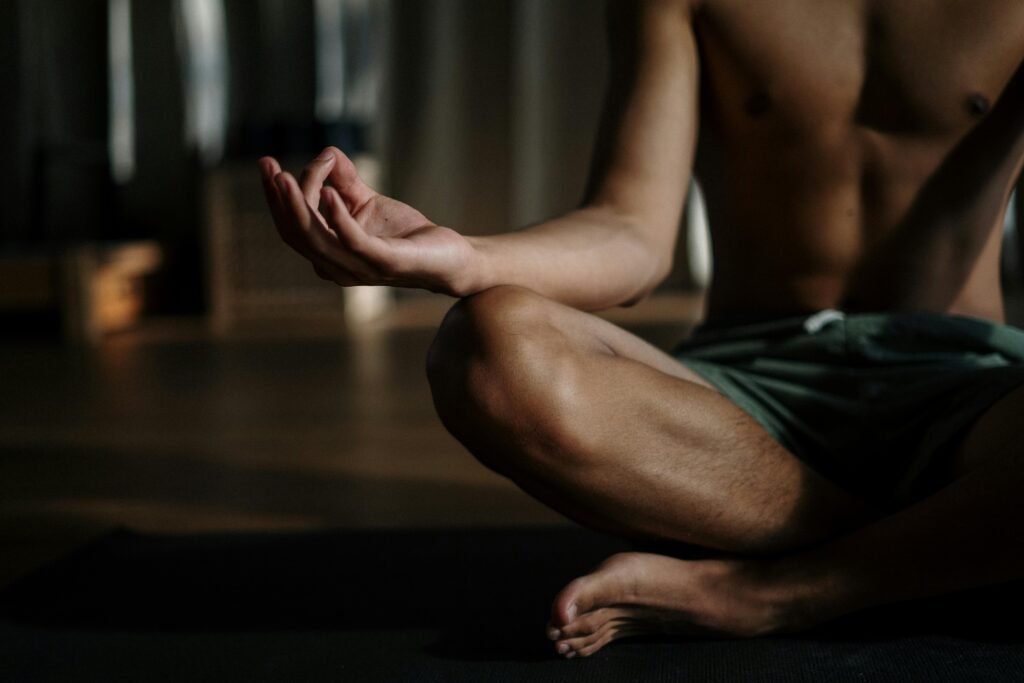Ever wondered what happens when ancient spiritual practices go wrong? While Kundalini awakening promises profound spiritual transformation, it’s not all bliss and enlightenment. This powerful energy, often depicted as a coiled serpent at the base of your spine, can unleash experiences that shake your world – both literally and metaphorically.
Think of Kundalini like a high-voltage spiritual current running through unprepared circuits. Without proper guidance and preparation, this sacred practice can lead to overwhelming physical symptoms, emotional turbulence, and even psychological crisis. Before you dive into awakening your Kundalini, there’s something you should know about the risks that traditional teachers have warned about for centuries.
Understanding the Concept of Kundalini Awakening
You’ve probably heard whispers about Kundalini Awakening – that mysterious force sleeping at the base of your spine. Think of it as your inner spiritual powerhouse, a divine feminine energy that, when awakened, moves up through your seven energy centers like a serpent rising.
This ancient practice isn’t just some modern wellness trend. It’s deeply rooted in Hindu traditions, where dedicated practitioners spend years preparing their bodies and minds for this profound shift. When this energy combines with pure consciousness at the crown of your head, it can spark a complete spiritual transformation.
What does it feel like? Many people report waves of blissful energy, heightened awareness, and a deeper connection to everything around them. But here’s the thing – you can’t force it. Sometimes it happens during meditation or yoga, while others experience it out of the blue. Your body and spirit need to be ready for this powerful change.

Physical Challenges During Kundalini Awakening
When Kundalini energy starts moving, your body might react in unexpected ways. You could feel sudden jerks or tremors, like your body’s doing its own dance without your permission. Many people report symptoms of Kundalini awakening – tingling that spreads across their skin or feelings of energy crawling up their spine.
Then there’s the heat. You might feel waves of warmth moving up your back, sometimes intense enough to make you sweat. It’s like having an internal thermostat that’s gone a bit wonky.
Your muscles might tighten or spasm as this powerful energy encounters blocks in your system. Some folks experience ongoing aches or pain, especially along their spine. These physical symptoms often show up when the energy’s working to clear old blocks or resistance in your body.
Psychological and Emotional Challenges
When Kundalini stirs, it’s not just your body that goes through changes – your mind and emotions can feel like they’re on a roller coaster. You might find yourself dealing with waves of anxiety as unfamiliar sensations wash over you. It’s scary when you can’t control what’s happening, right?
Your whole world view might get turned upside down. One day you’re going about your normal life, the next you’re questioning everything you thought you knew. Some people report feeling lost, like they’re floating between two worlds. These aren’t just psychological trauma symptoms – they can shake you to your core.
The intensity of these experiences can sometimes look like mental health issues. You might wonder if you’re losing it, especially when nobody around you understands what you’re going through. That’s why it’s so important to get support from someone who knows the difference between a spiritual awakening and genuine mental health concerns.

Long-term Health Impacts and Risks of Improper Practice
You might be eager to jump into Kundalini practices, but rushing in without proper preparation can lead to lasting problems. Some people who’ve tried to speed up the process end up with ongoing physical issues – from unexplained body pains to persistent energy fluctuations that just won’t settle down.
Those intense breathing exercises you found online? They can be risky if you’re not ready. Pushing too hard with pranayama can send your system into overdrive, leading to anxiety, insomnia, and energy imbalances that take months to sort out.
Working with chakras isn’t like following a DIY tutorial. Each energy center needs careful preparation. When you try to force your Kundalini to rise before you’re ready, it’s like trying to run a marathon without training – you’re asking for trouble. The traditional path takes years of preparation for good reason.
Impact on Interpersonal Relationships
Going through a Kundalini awakening can feel lonely, especially when those closest to you don’t get what you’re experiencing. You might notice you’re not clicking with old friends like before, or family members look at you differently when you talk about your spiritual journey.
Your personality might shift too. Sure, you’re feeling more loving and understanding, but your priorities are changing. The things that used to matter – like climbing the corporate ladder or keeping up with social media – might seem less important now. This can create distance between you and loved ones who haven’t gone through similar changes.
Want to keep your interpersonal relationships strong? Try finding middle ground. Share your experiences without overwhelming others, and stay connected to daily life even as you grow spiritually. Building friendships with others on similar paths can help too – they’ll understand what you’re going through when others can’t.

Spiritual Emergency Situations and Kundalini Syndrome
Sometimes a Kundalini awakening can become too much to handle. You might find yourself in what’s called a spiritual emergency – when the intensity of your experiences starts to mess with your daily life. It’s like being caught in a spiritual storm without an umbrella.
The signs of Kundalini syndrome can hit hard: wild swings in energy levels, emotional outbursts that seem to come from nowhere, and feeling like you can’t keep up with normal life anymore. Your body might feel electric one moment and completely drained the next.
When should you ask for help? If you’re struggling to sleep, eat, or work, don’t tough it out alone. If the symptoms are making it hard to function, or if you’re feeling scared about what’s happening, reach out. Working with someone who understands both spiritual awakening and mental health can make a huge difference. Remember, there’s no shame in getting support – even experienced practitioners sometimes need guidance through these intense phases.
In Conclusion
Embarking on a Kundalini awakening journey isn’t something to take lightly. While the potential for spiritual growth and transformation is real, so are the risks of rushing in unprepared. Remember, this ancient practice has survived thousands of years because of its power – but also because of the wisdom in its traditional safeguards and guidelines.
Before you start this journey, take time to find a qualified teacher, build a strong foundation, and create a support network. Your spiritual awakening doesn’t have to be a crisis – with proper preparation and guidance, it can be the profound transformation it’s meant to be. Just remember: in the world of Kundalini, slow and steady isn’t just safe – it’s sacred.
